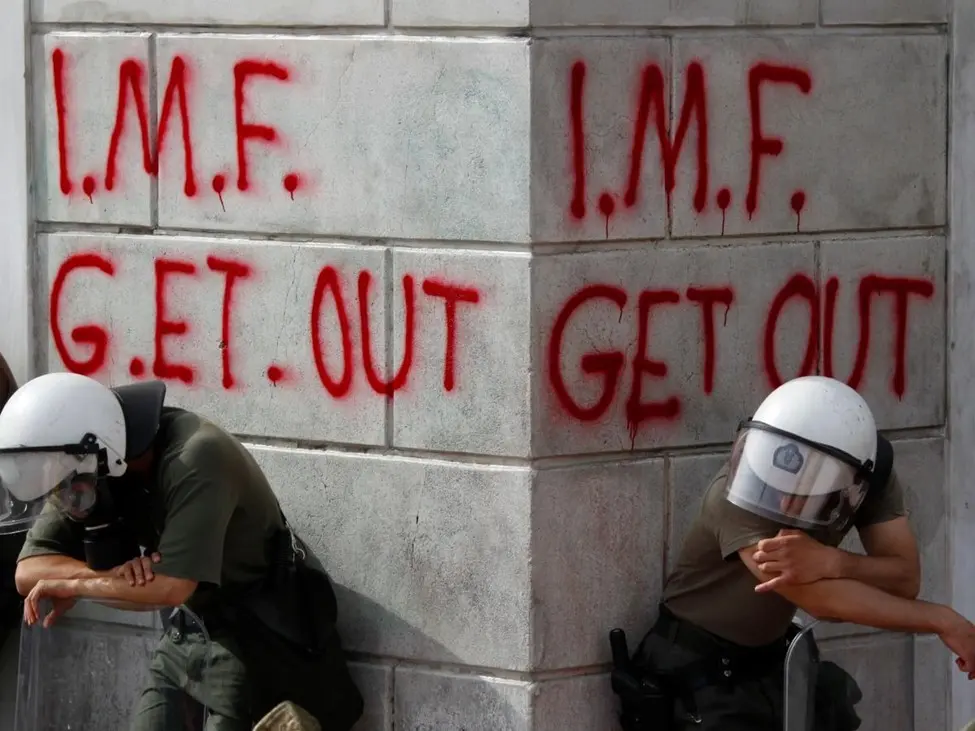Climate litigation has been a steadily growing trend in recent years with the number of litigation cases multiplying globally in 2022. In 2023, a new wave of climate lawsuits are stirring concerns among big industries, corporate stakeholders and governments and causing businesses to increase attention to precise reporting and accountability for emissions. As more regulators globally are developing rules that require large companies to disclose their climate-related risks, more companies are beginning to comply with the requirements and integrating the new regulations in their planning; demonstrating the critical nature of this shift. While the race to curb global heating gets tighter, the spotlight is growing on actors that are exacerbating the fossil-fueled climate crisis. At the same time, the gap between the concrete actions that companies and governments should be taking and where they currently stand is still huge. This makes climate litigation a more appealing channel for frustrated environmental activists and citizens. What impact does increased climate litigation have on businesses and governments? And what happens when legal paths yield unsatisfying results?
Taking on Giants
With the growing rush to set climate and sustainability targets, many businesses trying to comply with global standards have increased their exposure to the risk of being held accountable for not reaching or working towards these targets. In February 2023, the world’s first lawsuit against a commercial bank, BNP Paribas, was filed by French NGOs Friends of the Earth, Notre Affaire à Tous and Oxfam France. According to the French duty of vigilance law, multinationals are obliged to take action to protect human rights and the environment. After mounting public pressure, BNP Paribas committed to reduce financing oil and gas extraction and production by 2030 however until today, the bank has still not taken concrete measures to stop its clients active in these industries from developing new fossil fuel projects. The lawsuit is therefore a pivotal moment for climate litigation and could be a global turning point; forcing companies all around the world to reevaluate their legal commitments. It is also part of a larger movement working to pressure financial institutions to halt funding and plan their exits from the oil and gas sectors; the scale of action is therefore expanding and becoming more strategic.
While in the past, actions such as this may have been limited in their effect and may have also been more scattered, in recent years a number of important developments in climate litigation strategies have changed the landscape. For one, human rights arguments are being used in more cases, for example the successful Urgenda case which resulted in the Dutch government passing a new climate plan in 2019 with more ambitious emissions reduction targets. Additionally, a wider range of strategies are being used against major fossil fuel companies including claims of nuisance, fraud, insufficient or false disclosure, or greenwashing claims which are now a major issue in Europe.
Although lawsuits against companies are increasing, the majority of climate litigation cases globally are still against governments. In Canada, a group of seven young people filed the country’s first climate lawsuit against the Ontario government for its plan to roll back its 2030 greenhouse gas emissions reduction target. In South Africa, several important cases are pending decisions including one which involves a constitutional challenge to the country’s plan to build new coal-fired stations. Meanwhile, in Switzerland, two different courts dismissed the case of a group of older women who are claiming that their government’s failure to address climate change is putting their health at risk, and therefore violating their human rights. The case has now gone to the European Court of Human Rights. However, a lawsuit against the French government by a group of NGOs may be one of the few which resulted in a country being found guilty of climate inaction. In 2021, French courts ruled that France has not done enough to meet its emissions reduction goals. Although the state was only required to pay a symbolic 1 euro to show moral obligation, this case opened the way for potential direct victims of climate change to seek compensation from the French government.
Climate litigation is also becoming more organised and institutionalised with the rise of environmental law organisations taking on big actors that previously went unchallenged. Organisations such as ClientEarth, who filed an unprecedented lawsuit against the Board of Directors of Shell plc in March 2023, are holding business decision makers accountable and demanding better management of climate risks. The lawsuit, which claims that members of the Shell board have “breached their legal duties under the Companies Act by failing to adopt and implement an energy transition strategy that aligns with the Paris Agreement”, has also garnered support from institutional investors who collectively hold over 12 million shares in the company. This means that broad or vague climate strategies are no longer sufficient and that decision makers across private and public sectors need to develop a more solid understanding about the direct impact they have on the environment as well as their current and future capacity to be aligned with international agreements and work towards their climate commitments. The cost of climate litigation is also expected to increase even more as now some investors are seeing it as an opportunity to make revenue; the rise of litigation finance is likely going to increase the scale and competitiveness in this field, making it more difficult and costly for companies to continue business as usual.
Alternative Routes to Justice
However, changing strategies and frameworks may not lead to the urgent and radical change that many environmentalists are seeking. With climate change especially, the cost of inaction is high and people are more aware of this than ever before. The existential nature of the issue means that official means of achieving justice, if not timely, can soon lose their appeal. In many places this is already the case. Carnegie’s Climate Protest Tracker has identified nearly two dozen climate protests in 2022 in at least forty-one countries including France, Hungary and Brazil. Protests continue to take place globally in 2023 and are becoming even more targeted for example, senior American citizens protesting major banks that fund fossil fuels, Greenpeace activists disrupting the European Gas Conference and an Italian climate group protesting fossil fuels by dyeing the Roman fountain black. Growing discontent has also led to more radical forms of disobedience, which are often labelled, albeit inconsistently, “eco-terrorism”, such as the infamous tomato soup vandalism of Van Gogh’s Sunflowers painting. Although some groups no longer see this as effective, some experts fear that the world is still underestimating the extent to which militant environmentalism can expand.
But citizens and climate organisations are not the only ones frustrated with the lack of serious climate action. Scientist activism is also on the rise as climate scientists around the world have also begun using different channels to express their concerns and demands, including civil disobedience. Global movement Scientist Rebellion, which started in the United Kingdom in 2020, are using disruptive non-violent actions and civil disobedience to protest climate inaction and communicate critical scientific messages to a wider audience. This is also a growing trend as scientists find that evidence-based urgent warnings are not enough to spur governments into action.
Looking Ahead: COP28
Considering the upward trend in climate protests and civil disobedience, the upcoming COP28 is likely to be one of this year’s most anticipated events for environmental activists. UAE organisers are already prepared and taking preemptive measures to ensure the climate event takes place within traditional participatory and civil boundaries however, it remains unclear whether their approach will be accepted by international participants. The COP27 in Egypt was already criticised for the heavy presence of fossil fuel lobbyists. NGO observers reported on the dominating interests of the industry, noting that at least 636 of those attending COP27 were lobbyists for the fossil-fuel industry. COP28 organisers may have to carefully consider their selection of corporate participants or consider how to create space for dialogue between corporate and environmental stakeholders.
Conclusion
Climate litigation against the private sector will continue to grow and could cause major disruptions to core industries that could have a global ripple effect. Litigation against governments is also an emerging threat to legitimacy and, considering the intersectional nature of climate issues, could lead to social and political instability. Increasing instances of civil disobedience will also have a similar effect and may lead to violence, especially in the case of communities whose livelihood is directly impacted by climate policy or inaction. Governments and businesses need to account for these risks and take necessary action to meet their legal commitments towards climate change.
References
Hiar, C. (2023, March 27). Fear of climate lawsuits spreads beyond fossil fuel industry. E&E News. Retrieved April 3, 2023, from https://www.eenews.net/articles/fear-of-climate-lawsuits-spread-beyond-fossil-fuel-industry/
Oxfam International. (2023, February 23). French NGOs take BNP Paribas to court in World’s first climate lawsuit against a commercial bank. Oxfam International. Retrieved March 28, 2023, from https://www.oxfam.org/en/press-releases/french-ngos-take-bnp-paribas-court-worlds-first-climate-lawsuit-against-commercial#:~:text=This%20is%20the%20world’s%20first,26%20October%202022%20%5B1%5D.
Setzer, J., & Byrnes, R. (2020). (rep.). Global trends in climate change litigation: 2020 snapshot. Centre for Climate Change Economics and Policy (CCCEP). Retrieved April 2023, from https://www.lse.ac.uk/granthaminstitute/wp-content/uploads/2020/07/Global-trends-in-climate-change-litigation_2020-snapshot.pdf.
Kaminski, I. (2023, January 4). Why 2023 will be a watershed year for climate litigation. The Guardian. Retrieved March 28, 2023, from https://www.theguardian.com/environment/2023/jan/04/why-2023-will-be-a-watershed-year-for-climate-litigation
de Ferrer, M. (2021, February 9). France found guilty of climate inaction in ‘Historic victory’. Euronews. Retrieved March 30, 2023, from https://www.euronews.com/green/2021/02/03/french-government-found-guilty-of-climate-inaction-in-historic-victor
Drugmand, D. (2023, February 10). Lawsuit targets Shell’s board of directors over Energy Transition Plans. DeSmog. Retrieved March 30, 2023, from https://www.desmog.com/2023/02/09/clientearth-lawsuit-uk-shell-board-directors-energy-transition/
Kaminski, I. (2023, February 1). An ocean of opportunities? Climate litigation is doing so well it’s now being eyed by investors. The Wave. Retrieved April 2, 2023, from https://www.the-wave.net/climate-litigation-as-investment/
Milman, O. (2023, March 19). ‘We have money and power’: Older Americans to blockade banks in climate protest. The Guardian. Retrieved April 2, 2023, from https://www.theguardian.com/environment/2023/mar/19/climate-crisis-protest-environment-third-act-bill-mckibben
Greenpeace International. (2023, March 28). Greenpeace climbers hang 8-metre ‘end fossil crimes’ banner on European Gas Conference venue to protest industry plans to greenwash Fossil Gas. Greenpeace International. Retrieved April 2, 2023, from https://www.greenpeace.org/international/press-release/58917/end-fossil-crimes-protest-european-gas-conference-greenwashing/
Deutsche Welle. (2023, April 1). Climate activists turn famed Roman Fountain Black – DW – 04/01/2023. Deutsche Welle. Retrieved April 2, 2023, from https://www.dw.com/en/climate-activists-turn-famed-roman-fountain-black/a-65205301
De La Garza, A. (2023, January 5). Why climate activism may look different in 2023. Time. Retrieved April 2, 2023, from https://time.com/6244805/climate-protest-extinction-rebellion-future/
Dietzel, A. (2022, December 19). COP27: How the fossil fuel lobby crowded out calls for climate justice. The Conversation. Retrieved March 29, 2023, from https://theconversation.com/cop27-how-the-fossil-fuel-lobby-crowded-out-calls-for-climate-justice-195041












Comments